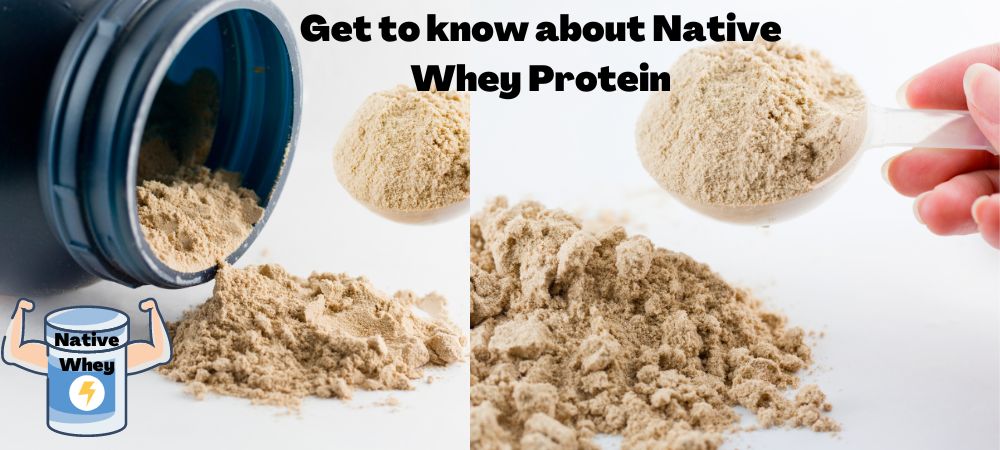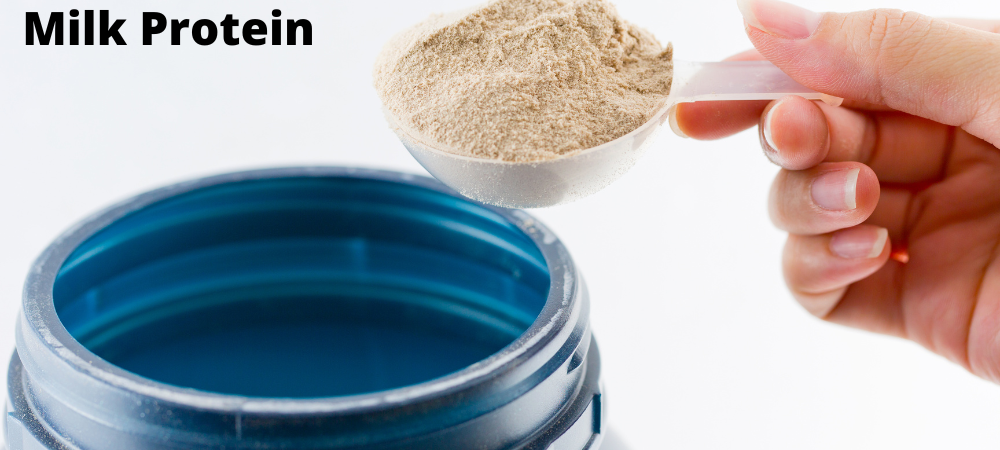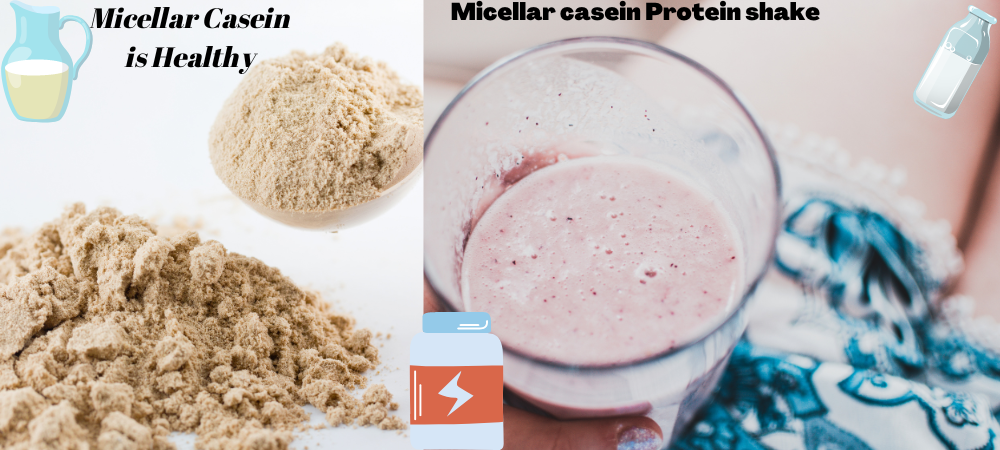If you have visited the market and seen the dairy product “Native whey protein,” you might be wondering how this product is different from regular whey protein. There is the chance that you also have seen marketing claims from companies about various benefits of native whey in order to get the attention of customers, especially bodybuilders.
But, does native whey beneficial as compared to regular whey? This article is based on scientific evidence and will discuss native whey protein.
So, let’s start with the introduction of this emerging dairy protein supplement.
What is Native Whey Protein?
Traditionally, whey is produced from by-products obtained during the cheese-making process. This procedure involved high-temperature heating and the addition of chemical substances.
While native whey protein is directly obtained from unprocessed milk using the filtration method (1). Thus, the protein extracted using this process is minimally processed, meaning there is no involvement of either high temperature or chemical additives.
Therefore, native whey can be considered as the purest and cleanest form of whey.
So, this change in the extraction method has made a real difference. Let’s explore more for deeper insight.
Native Whey vs Regular Whey: Which one is better
Native whey seems to have some apparent advantages, but there are some contradictions, keep exploring to know the real truth.
Since regular whey is exposed to heat, there is a chance of some protein denaturation. Moreover, an added chemical in regular whey might somehow find its way to the final product.
Naturally, minimal processing methods like filtration would lead to high-quality protein and a higher amino acid profile as compared to the traditional method.
This is true for native whey; for instance, it contains higher leucine content than regular whey protein. Remember that leucine is an important amino acid that contributes to muscle building (1).
In simple terms, the higher the leucine content, the higher will be the rate of muscle building and recovery. However, a higher quantity does not necessarily mean targeted results.
A scientific study observed that native whey protein is not superior to regular whey when it comes to muscle synthesis. However, the amino-acids level in the blood was still higher in the case of native whey ingestion (2). These results were obtained during a 5-hour period after exercise.
So, why similar results despite higher blood amino acids level? This may be due to a restricted supply of amino acids to muscle cells as our body could have a certain limit on how fast the amino acids can be transported. As a result, the fast growth of muscle can be restricted.
Now, the question arises, if native whey is not valuable for muscle synthesis, is it bad?
Definitely not; the benefits of native protein are still the same as regular whey, including the source of protein, amino acids, role in muscle strength, and other health effects. It just seems to have the same effects on the synthesis of muscle as regular whey.
Should you buy native whey protein?
Although scientists have shown that native whey cannot perform better than regular whey, it is still extracted through a clean, chemical-free procedure, which can be a valid reason to buy.
Besides, the researchers (1 , 2) have also pointed out the fact that native whey still is useful in muscle protein synthesis if seen in a long-term scenario because the previous results were based on just 5 hours after exercise. In either case, more research is needed to prove the benefits of native whey in comparison with regular whey protein.
Additionally, the cost of native whey powder is normally higher than regular whey. So, it all depends on whether you still want to purchase it.
Till now, native whey will remain an excellent choice to use as a protein supplement after workouts.
Summary
Native whey protein is an innovative and minimally processed protein source obtained directly from milk without adding any chemicals. It has a rich amino acid profile, especially increased leucine content compared to regular whey.
Still, native whey exhibits similar effects on muscle synthesis as regular cheese whey despite having a higher cost.
Further research is needed to prove any aspect. Till then, you can enjoy the protein powder of your interest.
Remember, it is necessary to know about the whey protein itself.



